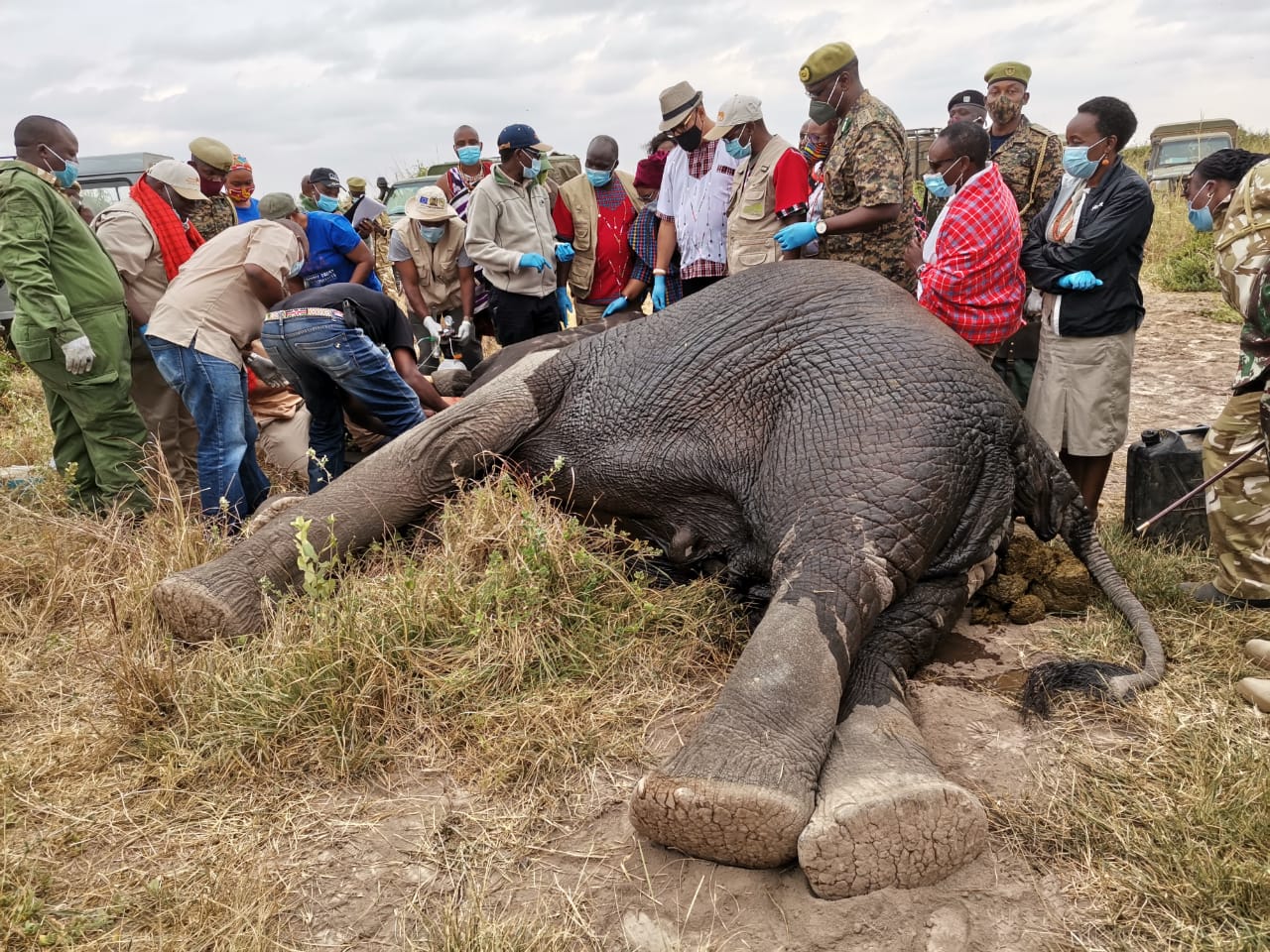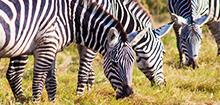
Date Published:
Kenya joined the rest of the globe to mark this year’s World Elephant Day with a united call by conservationists to save the iconic and endangered species.
Tourism and Wildlife Cabinet Secretary and Kajiado Governor Joseph Ole Lenku joined guests and representatives of the community living next to Amboseli National park to immortalize elephants, with a clarion call to step up measures to guarantee their survival in a world of competing land use.
The CS and the Governor said there was an urgent need to carry out regular censuses of elephants to ascertain their exact numbers so as to plan well, with clear statistics of their numbers and the carrying capacity of the ranges they occupy.
Balala said human-wildlife conflict was regrettable, even as he stressed the need to avoid zoos, caging in wildlife or building fences and instead allow wildlife as much freedom as possible. He said this freedom for animals carries a requisite cost that humans must pay for. “There is need to find innovative ways to benefit from wildlife resources,” he said.
The Cabinet Secretary said there was need to remodel the conservation program in order to put community first. Compensation claims totaling 1.5 billion shillings have been paid since he took office two years ago, he said, with Kajiado County getting 95 million for death and six million shillings for injury.
The theme for year’s World Elephant day theme was “bringing the world together to help elephants”. Earlier Balala and other guests witnessed the collaring of a sub-bull elephant at Elephant Collaring Operation Base in Amboseli National park to enhance monitoring of elephants in the ecosystem.
There is a calves boom in Amboseli National park, Balala said, and suggested that the recently born twins be named after the granddaughters of president, Uhuru Kenyatta.
Speaking about the recent outbreak of fires at Tsavo Conservation Area, Balala warned that the government will take stern action against arsonists bent on destroying national parks and reserves. He added that there were plans to undertake a reforestation of Tsavo to cushion it from the effects of the fires.
Principal Secretary in the State Department of wildlife, Prof. Fred Segor said it is necessary to secure more land adjacent to national parks. KWS Board of Trustees Vice Chair Betty Maitoyo, said she was aware that the National Elephant Plan will expire next year and hoped that KWS team will start the process of developing a National Elephant Action Plan to be launched during the next World Elephant Day.
She appreciated the important role played by various stakeholders such as Big Life Foundation, African Conservation Centre, African Wildlife Foundation, IFAW and Amboseli Trust for Elephants, amongst others. She thanked the communities living adjacent to Amboseli National Park for their commitment to wildlife conservation in spite of several challenges associated with living next to wildlife sanctuaries.
Kenya Wildlife Service Director General Brig (Rtd.) John Waweru, said World Elephant Day presents a platform for creating awareness on the threats to African and Asian elephants, such as habitat loss, land use pressure, illegal killings of elephants for both meat and ivory and human-elephant conflicts. “It is fortunate that Kenya has a conservation and management strategy for elephants in place to guide elephant recovery strategies which has seen a more than 100% growth in Kenya’s population, from 16,000 in 1989 to 34,800 by end of 2019”, he said.
“The Amboseli ecosystem is a success story. It is a pointer to the internal engagements and evolving responsibility of elephant management to groups in key strategic locations such as dispersal areas, corridors, human-elephant conflict hotspots and places where land use is compatible with elephant conservation,” he said.
Brig. Waweru stated the future of elephant survival will depend on whether or not they are tolerated by local land owners. “Changing land use such as irrigated agriculture and unplanned settlements will fragment wildlife dispersal corridors and delink Amboseli National Park from Tsavo and Kilimanjaro eco systems,” he said, adding that the Amboseli Park Management Plan is expected to be complete soon and gazetted by Octoberthis year.
Governor Lenku said Amboseli Ecosystem has over 1,500 elephants, yet its carrying capacity is just over 300, leading to increased human-elephant conflicts. Ole Lenku stressed on the need for the government to work with the Maasai community to share benefits accrued from conservation. He said it is important to have a framework in place in order to understand the plan of development for Amboseli, adding he was ready to gazette the Amboseli Management Plan upon its completion.
Others who attended the event included Cynthia Moss, Director, Amboseli Trust for Elephants; Lucy Waruingi, Director, African Conservation Centre; Joseph Nkanatha, County Commissioner, Kajiado; Betty Radier, CEO Kenya Tourism Board and the Principal Secretary, State Department of Tourism, Hon. Safina Kwekwe and IG (Rtd) Joseph Boinnet, Chief Administrative Secretary in the Ministry of Tourism and Wildlife.





